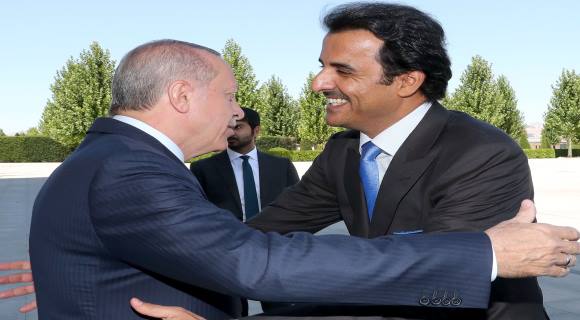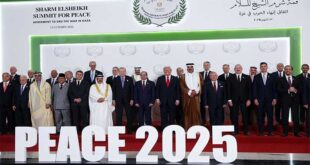By Abdel Bari Atwan
Qatar threw all its weight behind its Turkish ally on Wednesday when its emir, Sheikh Tamim Bin-Hamad Al Thani announced — after flying to Ankara and holding a three-hour meeting with President Recep Tayyip Erdogan — that it would invest $15 billion in the country to support the Turkish economy and prevent the collapse of its national currency (the lira).
This step comes at a time when Turkey is facing a ferocious economic war waged on it by US President Donald Trump’s administration aimed at ruining its economy and weakening the lira, which began with the doubling of tariffs on Turkish iron, steel and aluminium exported to the US.
The Turkish government has retaliated by imposing comparable tariffs on imported American goods and halting imports of all US-made electronic products while taking financial measures to bolster the lira. This succeeded in arresting the collapse of the currency, which on Wednesday regained some 15% if its value against the dollar. The Qatari move gave it a further significant boost, and many analysts expect the lira to continue improving in value in the coming few days.
Turkish Presidential Spokesman Ibrahim Kalin hailed Turkey’s relationship with Qatar as “based on firm foundations of true friendship and solidarity,” but revealed no details about how this package of Qatari investments will be distributed.
Qatar’s offer of support to Turkey and its economy at this difficult time is a way of repaying favours. It is an acknowledgement of the solidarity shown by Turkey when Qatar was suddenly blockaded by its four Arab detractors – Saudi Arabia, the UAE, Bahrain and Egypt — in protest inter aliaat its support for the Muslim Brotherhood, its hosting of some Gulf opposition figures, and the output of its Al-Jazeera’s TV channel which they deemed hostile. Ankara not only set up an air bridge to supply it with basic goods and foodstuffs. It also established a military base in Qatar and deployed some 35,000 troops there. This, according to several Gulf and Western reports, thwarted a plan that was being drawn up to invade the emirate and change its regime.
The Emir of Qatar’s visit to Turkey at this juncture and his offer of a package of investments will rub more salt into the inflamed wound of the Gulf crisis. It will aggravate the hostility of Qatar’s four adversaries to Turkey and to Erdogan personally, especially after he implicitly accused some of them of being complicit in the economic war against his country.
Qatar’s move will earn it plaudits not just in Turkey but among a broad swathe of Arab and Islamic opinion that sympathises with Turkey as a fellow Muslim country being unfairly targeted by the US. But it could also prove dangerous, as it is an act of defiance against Trump personally and his plans to undermine the Turkish economy in order to cause trouble for Erdogan, his government, and his Justice and Development Party, and force them to hand over the detained American pastor accused of terrorist links.
The US has yet to react publicly to Qatar’s defiance, which is both courageous and risky. But Erdogan will certainly appreciate the lifeline he has been given at this acutely difficult time
 Geostrategic Media Political Commentary, Analysis, Security, Defense
Geostrategic Media Political Commentary, Analysis, Security, Defense





